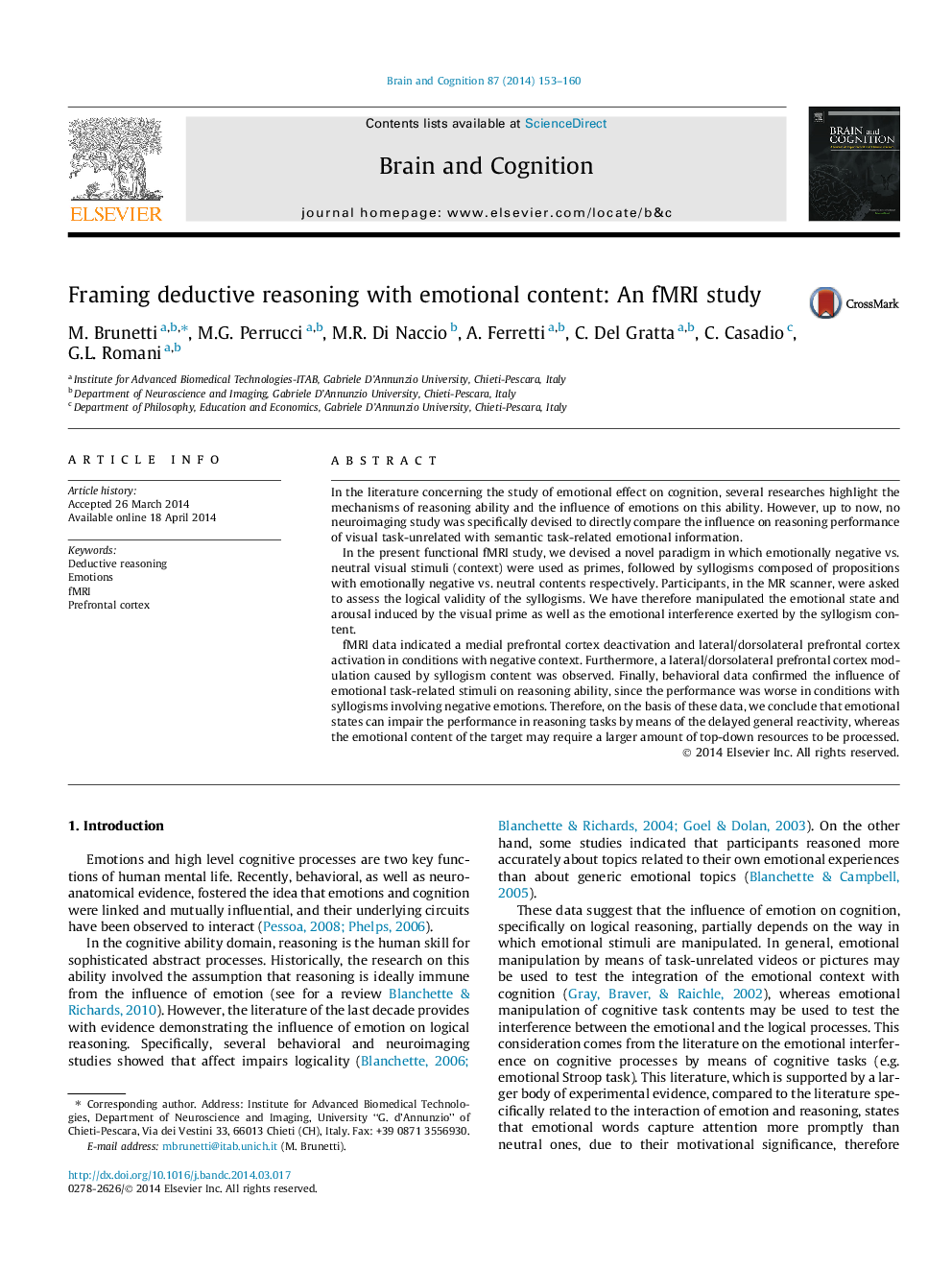| Article ID | Journal | Published Year | Pages | File Type |
|---|---|---|---|---|
| 924061 | Brain and Cognition | 2014 | 8 Pages |
In the literature concerning the study of emotional effect on cognition, several researches highlight the mechanisms of reasoning ability and the influence of emotions on this ability. However, up to now, no neuroimaging study was specifically devised to directly compare the influence on reasoning performance of visual task-unrelated with semantic task-related emotional information.In the present functional fMRI study, we devised a novel paradigm in which emotionally negative vs. neutral visual stimuli (context) were used as primes, followed by syllogisms composed of propositions with emotionally negative vs. neutral contents respectively. Participants, in the MR scanner, were asked to assess the logical validity of the syllogisms. We have therefore manipulated the emotional state and arousal induced by the visual prime as well as the emotional interference exerted by the syllogism content.fMRI data indicated a medial prefrontal cortex deactivation and lateral/dorsolateral prefrontal cortex activation in conditions with negative context. Furthermore, a lateral/dorsolateral prefrontal cortex modulation caused by syllogism content was observed. Finally, behavioral data confirmed the influence of emotional task-related stimuli on reasoning ability, since the performance was worse in conditions with syllogisms involving negative emotions. Therefore, on the basis of these data, we conclude that emotional states can impair the performance in reasoning tasks by means of the delayed general reactivity, whereas the emotional content of the target may require a larger amount of top-down resources to be processed.
